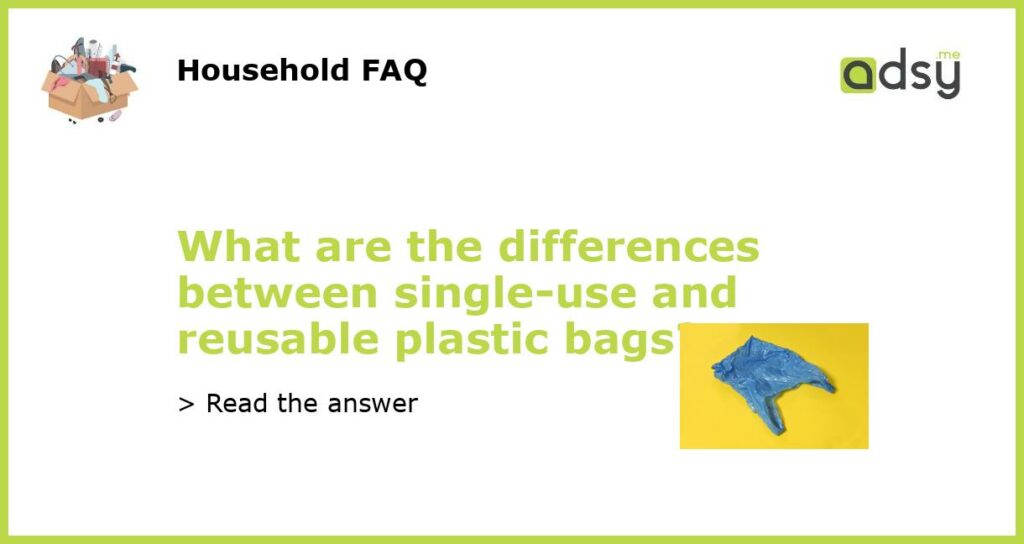Differences between Single-Use and Reusable Plastic Bags
Plastic bags have become a common sight in our daily lives, whether it’s at shopping malls, grocery stores, or even at home. However, not all plastic bags are created equal. There are two main types of plastic bags – single-use and reusable. Let’s take a closer look at the differences between these two types and the impact they have on the environment.
Material and Durability
Single-use plastic bags are typically made from thin, lightweight plastic such as high-density polyethylene (HDPE) or low-density polyethylene (LDPE). These bags are designed for one-time use and are not intended to be durable. They often tear easily and can only hold a limited amount of weight.
On the other hand, reusable plastic bags are made from thicker and sturdier materials, such as non-woven polypropylene (PP) or recycled PET fabric. These bags are specifically designed to be reused multiple times and can withstand heavier loads. They are more durable and less likely to tear, providing a longer lifespan.
Environmental Impact
One of the biggest differences between single-use and reusable plastic bags is the impact they have on the environment. Single-use bags are a major contributor to plastic pollution. They are often used for just a few minutes before being discarded, but they can take hundreds of years to decompose. During this time, they can clog up waterways, harm wildlife, and contribute to the overall plastic pollution crisis.
In contrast, reusable plastic bags are designed to reduce waste and minimize environmental impact. By using one reusable bag instead of many single-use bags, you can significantly reduce your plastic consumption and help protect the planet. Reusable bags can be used hundreds, if not thousands, of times before needing to be replaced. This means fewer bags ending up in landfills or the ocean.
Cost and Convenience
While single-use plastic bags may appear to be cheaper upfront, the cost of using them can add up over time. Many stores charge a small fee for single-use bags to discourage their use and promote reusable alternatives. Additionally, the cost of cleaning up and managing the waste generated by single-use bags is often passed on to taxpayers.
Reusable plastic bags, although slightly more expensive upfront, can save you money in the long run. Many stores offer discounts or incentives for bringing your own bag. With proper care, a single reusable bag can last for months or even years, eliminating the need to constantly purchase new bags. They are also more convenient since they can carry a larger load and are less likely to break or tear.
Public Health Concerns
Single-use plastic bags have been associated with several public health concerns. When these bags break down over time, they release microplastics into the environment, including our food and water sources. These microplastics have been found to contain toxic chemicals that can be harmful to both human and animal health.
Reusable plastic bags, especially those made from non-toxic materials, do not pose the same health risks. They are typically more hygienic, as they can be easily cleaned and sanitized between uses. This is particularly important during the COVID-19 pandemic, as reusable bags can be washed regularly to help prevent the spread of germs.
Recycling and Waste Reduction
While both single-use and reusable plastic bags can be recycled, the reality is that only a small percentage actually end up being recycled. Single-use bags are often discarded improperly and end up in landfills or as litter. Even when they are properly disposed of, the recycling process for these bags is energy-intensive and not widely available.
Reusable bags, on the other hand, can be reused multiple times before being recycled. Many recycling programs also accept reusable bags made from materials such as non-woven PP or recycled PET fabric. By choosing reusable bags, you can play an active role in reducing plastic waste and supporting sustainable recycling practices.
Single-use and reusable plastic bags differ significantly in material, durability, environmental impact, cost, convenience, public health concerns, and recycling opportunities. While single-use bags are cheap and convenient, they contribute to plastic pollution and have negative effects on the environment and public health. Alternatively, reusable bags are more durable, eco-friendly, cost-effective, and offer a safer option. By choosing reusable bags over single-use ones, individuals can make a positive impact on the environment and help mitigate the plastic waste crisis for a more sustainable future.






